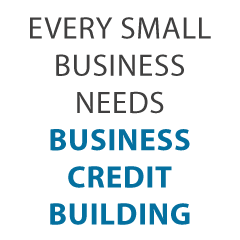- Connect With Us!
- (877) 600-2487
- info@creditsuite.com
The Tale of Elusive Minority Business Loans: Where to Find Them and What It Takes to Get Them
Published By Faith Stewart at August 29th, 2019
Minority Business Loans are Out There, You Just Have to Know Where to Look
The United States is full of those considered to be “in the minority.” In fact, in some areas the majority of the population is considered to belong to a minority group! This is why minority business loans are more important than ever. Ensuring minority business owners have the funding they need to help their business thrive is vital to the economy.
The thing is, if you do not know where to look or what you are looking for, it can be difficult to snag one minority business loans. We are here to help you have a successful hunt.
The Best Sources for Minority Business Loans
There really are several sources for minority business loans. It is necessary to know the specifics of each however, before you can move in for the kill. Some only offer minority business loans to those in certain cities. Some are only available if you are looking to land government contracts. Each have their own requirements, and it takes a ton of time and research to figure it all out. We have a lot of research here to save you time. You do not have to start from scratch.
Business Consortium Fund, Inc.
This program is designed specifically for minority businesses. It is certified by the US Department of the Treasury. Businesses can qualify for $75,000 to $500,000 after approval. Amounts above $500,000 are on a case by case basis.
Funds can be used for working capital, equipment financing, and contract financing. To apply, you have to certify your business through National Minority Supplier Development Council. Additionally, you must have a supplier relationship with the Council.
National African American Small Business Loans
These loans are only available to low- and medium-income communities in Chicago, Los Angeles, and New York. The NASBLF provides capital to African American minority-owned businesses not eligible for traditional financing.
Loans range from $35,000 on the low end to $250,000 on the high end. Technical assistance and financial consultation services are also available to business owners. Allowable fund uses include expansion, equipment purchases, and cash flow. They only have $30 million total to loan out in a year, unless more grant funds become available to the program.
Hit the jackpot with our best webinar and its trustworthy list of seven vendors who can help you build business credit.
Accion
Accion offers funding in all states for minorities, veterans, women, those with disabilities, and low to medium income business owners. Loan amounts range from $200,000 to $300,000. They work to help build businesses from the beginning, and can put owners in contact with other banks, non-profits, and government resources that help build a network of support.
The minimum credit score for these loans is 575, and you cannot be 30 days late on credit cards, loan payments, or bills. In addition, you will not qualify if you have any late rent or mortgage payments over the past year.
Community Development Financial Institutions Fund (CDFI)
This group lends to those communities that are traditionally underbanked, including business owners that are minorities. Since the Community Reinvestment Act of 1977, banks are required to offer funding in communities that find it hard to qualify for traditional funding. Big banks often fund minority business owners indirectly through their CDFI partners.
To locate a CDFI, contact the local business development center or your local Small Business Development Center office. They can hook you up.
While the application process can be lengthy, they do offer assistance to prepare for future bank loans. In addition, their rates are competitive within the U.S.
Union Bank Business Diversity Lending Program
This program from Union Bank assists minority business owners with loans and lines of credit. To qualify as a minority for this program you must be Hispanic, American Indian, Latino, Asian, Alaskan Native, African American, Native Hawaiian, or other Pacific Islander.
A business that has revenue of up to $20 million could qualify for a loan of up to $2.5 million. However, you must be in business for at least 2 years, and the minority business owner must own at least 51 percent.
Indian Affairs
Businesses owned my Native Americans can get financing from the federal government through the Indian Affairs branch. An individual can fill out an application for up to $500, 000, but business entities and tribal enterprises my apply for more.
Potential borrowers can apply with any lending institution, they just have to use the Indian Affairs application. If the funds are used for construction, renovation, or refinancing, there are additional requirements. Generally, a list of collateral, a credit report, and an analysis of business operations are required.
Camino Financial
They are an online lender that offers minority-owned businesses loans and business solutions. They process all of their lending online, which makes it easy and convenient. Their microloans range from $5,000 to $50,000. They also offer small business loans between $10,000 to $400,000.
There is no collateral requirement. Also, you can pay off the loan any time with no penalties or fees. Pre-qualification happens within 24 hours, and since all documents are submitted online, you do not have to make unnecessary trips to turn in or sign papers.
Hit the jackpot with our best webinar and its trustworthy list of seven vendors who can help you build business credit.
Other Options for Minority Business Loans
If you do not qualify for any of those already mentioned, or if you need more funding than what you can get with them, you may need a plan B. There are other options out there, but first you should know that traditional big banks are probably not on the list.
Why Big Banks Probably Will Not Work
Big banks are what most people think of as the first stop when it comes to getting a loan. That is true for some, but for most small business owners they are not the way to go. This is true whether they are looking for minority business loans or business loans in general.
Here’s why:
● Small businesses represent small loans with higher failure rates than larger businesses. Most are not at ease lending to companies with less than $1 million in sales.
● Big banks like collateral, and small businesses are less likely to have sufficient collateral for the loans they need. They are more likely to be leasing assets than larger businesses may own and offer as collateral.
● They also like to see a personal credit score of at least 680. Many small businesses, especially those that are less than 3 years old, do not have this.
So, what are small businesses to do if they need funding? What if the specific minority business loans are not enough? Consider these other options.
Community Banks: Minority Business Loan Heroes
Community banks can be a great option. They are more easily accessible to small businesses in general. They tend to have better customer service and care more about the people involved than the bottom line. Often, they are more interested in building relationships with their lenders than their big bank counterparts are. However, their rates and terms are typically just as good as those with the larger lenders.
The downside is, as a brick and mortar financial institution they are still going to be slow. You will have to make multiple trips to the bank, and the whole process can be kind of long and drawn out.
The Small Business Administration
The Small Business Administration, or SBA, offers a number of options for minority business loans. They do not lend funds themselves, but rather work with lenders to offer security, so that they can make loans to those business owners that may be considered higher risk than what they would normally consider approving.
SBA Community Advantage loans:
Community advantage loans from the SBA are designed for businesses in underserved communities that need less than $250,000. You can find lenders that work with the SBA on this program using the SBA Lender Match tool.
SBA microloans
They also have microloans available of up to $50,000. These are offered through nonprofit organizations. With interest rates ranging from 8% to 13% and maximum repayment terms of six years, they can work well for those need minority business loans
One of the SBA’s partners in this program is The Opportunity Fund. According to them, of its borrowers, 90% are minority business owners.
SBA 8(a) business development program
If you are a small business interested in government contracts, an 8(a) certification can help. Your business must be at least 51% controlled by individuals that are “socially and economically disadvantaged.” This includes minorities, veterans, and women.
SBA 7 (a) Loans
These are not specifically for minorities, but they are available to minorities as well as everyone else. They are 10-year loans of $30,000 to $350,000. Rates range from 9.7% to 11.04%, and they can turn around in as little as seven days, though they more often take up to several weeks.
Alternative Lenders and Minority Business Loans
While not necessarily only for minorities, many alternative lenders offer loans that meet the challenges often faced by those seeking business loans. One of the greatest issues for small business owners when it comes to small business financing is credit score. The following loans are available with a lower credit score than what is typically required by traditional lenders.
Fundbox
There is no minimum credit score, but if you have at least $50,000 in annual revenue you can qualify for a line of credit from Fundbox. You also need to be in business for at least 3 months. Amounts range from $1,000 to $100,000 with rates from 10.1% to 79.8%. Terms are for 12 weeks, and you can have your funds as quickly as the next business day.
Kabbage
Another lender that will make loans on credit scores as low as 500 is Kabbage. Terms are for 6, 12, or 18 months and amounts range from $2,000 to $250,000. Interest rates are higher, at 24% to 99%. Funding can take several days, but sometimes happens in just a few minutes.
QuarterSpot
QuarterSpot is another option, and it is preferable for many as the terms go up to 18 months. Loans range from $5,000 to $250,000, but rates are pretty high at 30% to 70%. Approval can happen in as little as 24 hours.
Credibility Capital
Loans with Credibility Capital range from $50,000 to $400,000. Terms are for 1,2, or 3 years, and rates range from 10% to 25%. Funding usually takes around 7 days.
SmartBiz
SmartBiz offers low cost financing for expansion. These are SBA loans, but with SmartBiz funding happens a lot faster than with traditional banks. In fact, they can take a few weeks rather than a few months.
Hit the jackpot with our best webinar and its trustworthy list of seven vendors who can help you build business credit.
Business Credit is Better
These minority business loans are heavily dependent on personal credit scores. That’s well and good, and if you qualify and need funding now, go for it. Regardless of whether or not you qualify for these loans however, you need to be building business credit.
Business credit is credit that is not connected to your personal credit score. It is based on the merits of your business alone. It is much better to use business credit than personal credit to fund your business. For one thing, if your business goes bust, your personal credit will not be affected directly. However, handling business transaction using your personal credit can negatively affect your credit score even if you make all of your payments on time.
This is due to the fact that, by nature, personal credit limits are lower than business credit limits. At the same time, business transactions are more expensive than personal ones. This means that if you fund business transactions on personal credit, you will always be close to maxing out your credit. That raises your debt-to-service ratio, which in turn lowers your credit score.
How Do You Get Business Credit?
The first step is to make your business look fundable. That means separating it from yourself in all ways possible. There needs to be a business address that is separate from your own, as well as a dedicated business telephone number through a toll-free exchange.
In addition, you need to incorporate. That means choosing between a corporation, s-corp, or LLC. A sole proprietorship or partnership will not work for business credit building. Next, apply for and EIN. It functions similarly to an SSN, but for your business.
There are a ton of other steps to establishing business credit, but these will give you a great start.
Don’t Give Up on Minority Business Loans
One thing is for certain, there are a ton of options out there for minority business loans. The only catch is that not all of them will work well for every minority owned business. We have given you enough to get you started, now get moving figuring out which ones will work for you. In the meantime, start building business credit so you can fund your business using its own credit and not your personal credit.

 " class="attachment-blog-single size-blog-single wp-post-image" alt="Get Business Credit Cards for New Businesses Credit Suite-Business Line of Credit Decoded" title="Get Business Credit Cards for New Businesses">>
" class="attachment-blog-single size-blog-single wp-post-image" alt="Get Business Credit Cards for New Businesses Credit Suite-Business Line of Credit Decoded" title="Get Business Credit Cards for New Businesses">>

